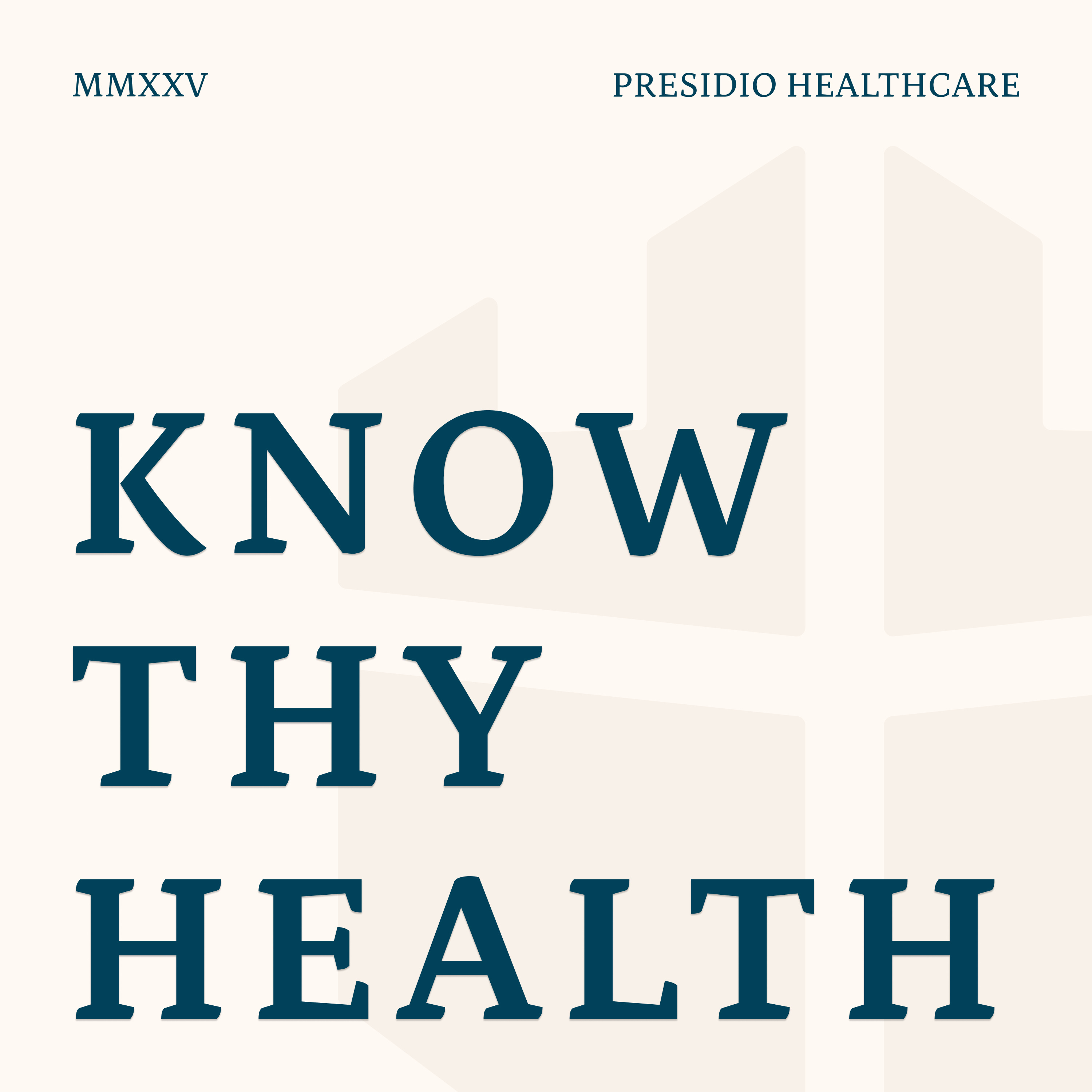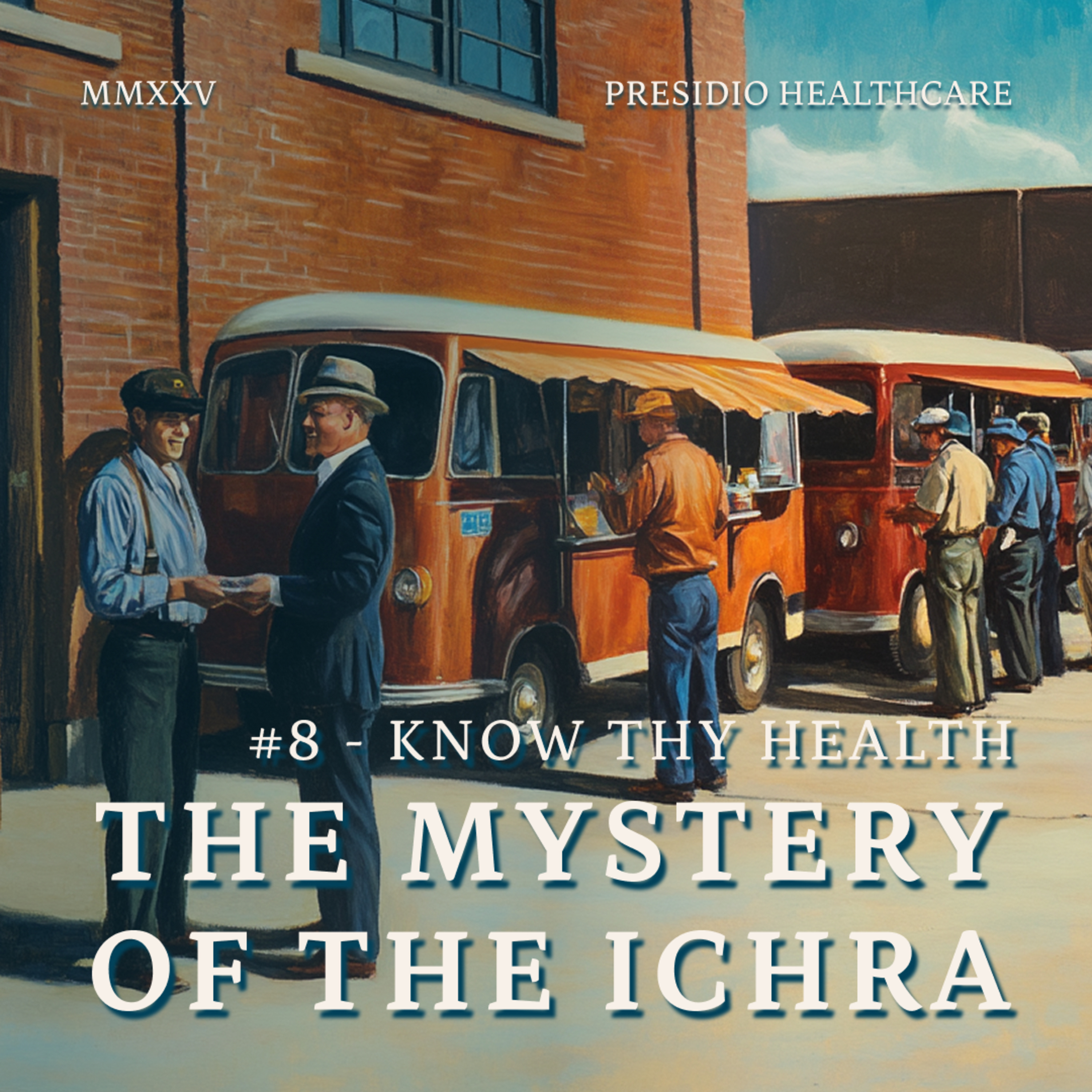Know Thy Health

Know Thy Health
Podcast Description
Four health insurance enthusiasts decode America’s most confusing game show: health insurance. Dive into premiums, plans, and policy chaos. It’s the good, the bad, and the deductible — all so you can survive the system without losing your sanity (or your wallet).
Podcast Insights
Content Themes
Focuses on health insurance literacy, consumer empowerment, and systemic healthcare issues, with episodes covering topics such as the Defined Contribution Model, pricing transparency in healthcare, the MAHA movement's implications, and practical healthcare savings strategies.

Four health insurance enthusiasts decode America’s most confusing game show: health insurance. Dive into premiums, plans, and policy chaos. It’s the good, the bad, and the deductible — all so you can survive the system without losing your sanity (or your wallet).
In this episode, Daniel Cruz and Cameron Mason discuss the Defined Contribution Model in employer-based health coverage, focusing on the Individual Coverage Health Reimbursement Arrangement (ICHRA) and its evolution from the Qualified Small Employer Health Reimbursement Arrangement (QSERA). They explore the differences between these models, the challenges of employer adoption, and the unique approach of Remodel Health in navigating the changing landscape of health insurance. The conversation also touches on the future of ICRAs, market adoption, and the need for regulatory changes to facilitate a smoother transition for employers and employees alike.TakeawaysThe Defined Contribution Model allows employees to choose their own health insurance plans.ICHRAs provide flexibility and can lead to cost savings for employers and employees.Obamacare created a framework that has influenced the current health insurance market.The shift from group health plans to individual plans is similar to the transition from pensions to 401(k)s.Remodel Health's success is attributed to its focus on customer service and understanding employer needs.Barriers to ICRA adoption include employer anxiety and broker resistance.The individual market is stabilizing, making it more attractive for employers to consider ICRAs.Regulatory changes could enhance the appeal of ICRAs and improve market conditions.Product parity between group and individual health plans is essential for broader adoption of ICRAs.The future of health insurance may involve more personalized options for employees. Chapters00:00 Introduction to the Defined Contribution Model01:43 Cameron Mason's Journey in Healthcare05:40 Understanding the Defined Contribution Model10:48 The Evolution of Healthcare Legislation19:31 Differences Between QSERAs and ICRAs24:38 Remodel Health's Unique Approach30:02 Challenges in Employer Adoption of ICRAs41:40 The Value of Trust in High-Stakes Transactions44:37 The Role of Brokers in Healthcare46:37 Navigating Complexity in Health Insurance49:03 Challenges in the Individual Market52:54 Incentives and Market Dynamics54:52 Creating Product Parity in Health Plans01:01:22 The Future of ICHRA and Employer Benefits01:04:23 Market Adoption and the Future of HealthcareKeywordsDefined Contribution Model, ICHRA, QSERAs, Health Insurance, Employer Coverage, Obamacare, Individual Market, Remodel Health, Health Reimbursement Arrangements, Employee Benefits

Disclaimer
This podcast’s information is provided for general reference and was obtained from publicly accessible sources. The Podcast Collaborative neither produces nor verifies the content, accuracy, or suitability of this podcast. Views and opinions belong solely to the podcast creators and guests.
For a complete disclaimer, please see our Full Disclaimer on the archive page. The Podcast Collaborative bears no responsibility for the podcast’s themes, language, or overall content. Listener discretion is advised. Read our Terms of Use and Privacy Policy for more details.